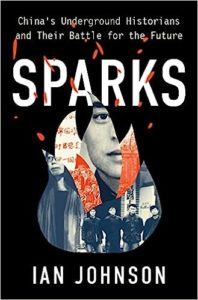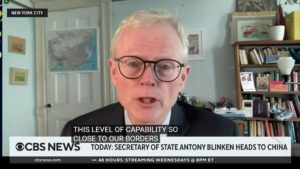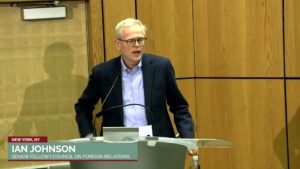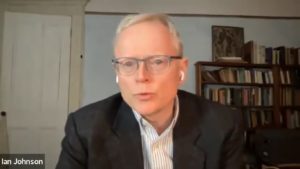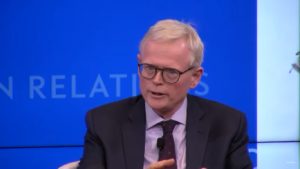
China veteran Ian Johnson published earlier this month China’s Underground Historians and their Battle for the Future, “Based on years of first-hand research in Xi Jinping’s China, Sparks challenges stereotypes of a China where the state has quashed all free thought, revealing instead a country engaged in one of humanity’s great struggles of memory against forgetting―a battle that will shape the China that emerges in the mid-21st century.”
In the China Project, Ian Johnson discusses his book with Kaiser Kuo.
The China Project:
Ian: Well, I think that we have to realize that this state, currently under Xi Jinping, as powerful as it is, it has not crushed all free thought. That there’s still people in China today who are availing themselves of basic digital technologies and just person-to-person contact to keep alive a different vision of China. I will be giving a talk in New York with my interlocutor Gal Beckerman who wrote a book called The Quiet Before. It basically talks about the slow burn process of how social movements take off. They don’t take off all right away. They take off with slow person-to-person contacts. I think this is something that you can see from this book, that there is this group, tens of thousands of people, this small collective memory of a different kind of China that could be, and that they’re still at it and they’re still active.
If we’re looking for interlocutors in China, and people are always like, “Who do we talk to? We can’t talk with the Communist Party.” These are the kind of people we could be talking to more. We could be inviting them. It stuns me that there’s not been a major retrospective at a big film festival of Hu Jie, of his films. I mean, he’d made three classic documentary films. He’s made it more, but three of them are just outstanding. These kinds of things, I think we should be more aware of them. This would also give people a different view of China. There are so many people in the West who see China as this monolith with just bad commies running the show. And while there may be some truth to that, it’s important to realize that there are other people out there too, and that they’re significant in number.
They’re not all just beleaguered victims about to be arrested right away. They have agency and they’re doing interesting stuff, and we should try to engage with them. Go over, visit them, bring our university, start up university exchanges more. Especially us going there. All those things are takeaways that I put in the conclusion. And because I am working at the Council on Foreign Relations, I have to have a little bit of a policy wonk takeaway thing. That’s in the conclusion of my book as some things that we could consider as implications of these stories.
Ian Johnson is a speaker at the China Speakers Bureau. Do you need him at your meeting or conference? Do get in touch or fill in our speakers’ request form.
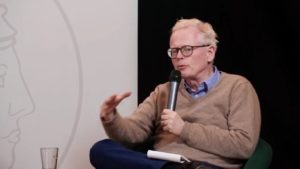
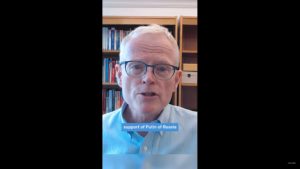 The disappearance of former foreign minister Qin Gang has triggered off a spate of rumors.
The disappearance of former foreign minister Qin Gang has triggered off a spate of rumors. 